Text
My idea of literature is something more spontaneous, more cohesive, something with a kind of natural, positive vitality. For me, writing a novel is like climbing a steep mountain, struggling up the face of the cliff, reaching the summit after a long and arduous ordeal. You overcome your limitations, or you don't, one or the other. I always keep that inner image with me as I write.
Haruki Murakami, What I Talk About When I Talk About Running
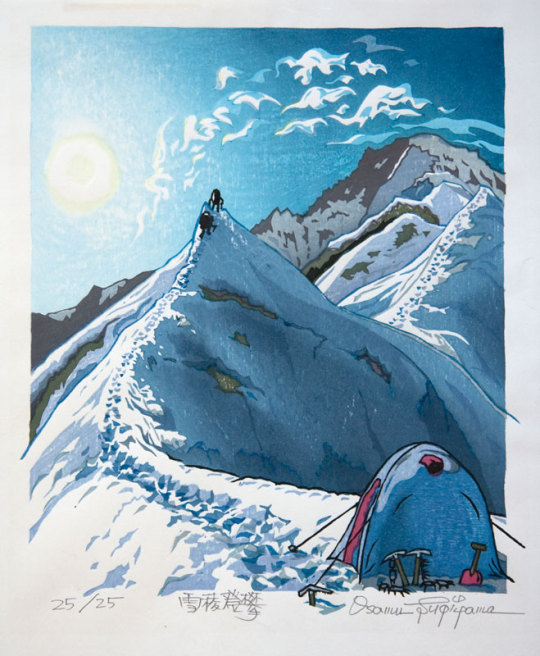
Art by Osamu Sugiyama
#haruki murakami#murakami haruki#murakami#japanese literature#literature#memoir#quotes#books#books & libraries
2 notes
·
View notes
Text
In my chair, I surrendered myself to a world of sound that could only be described as sparkling. It made my head sway, and my breath grew deeper as my legs climbed up that evanescent staircase, each step a sheet of light. They would shimmer to life the second my sole made contact, then fizzle into stardust when I lifted my foot, only to be reborn as yet another step, gently showing me the way. That slowly winding spiral stairway of light ascended freely through the dark, and though I was unsure where it was taking me, or what I would find when I arrived, as long as the music was playing, I knew that there was nothing to fear, that I could go anywhere at all.
Mieko Kawakami, All the Lovers in the Night

Art by Xuan Loc Xuan
1 note
·
View note
Text
I'm all alone, I thought.
I'd been on my own for ages, and I was convinced that there was no way I could be any more alone, but now I'd finally realized how alone I truly was. Despite the crowds of people, and all the different places, and a limitless supply of sounds and colors packed together, there was nothing here that I could reach out and touch. Nothing that would call my name. There never had been, and there never would be. And that would never change, no matter where I went in the world. Surrounded by the grayness of the city, ever grayer in the misty rain, I was unable to move.
Mieko Kawakami, All the Lovers in the Night

Art by Xuan Loc Xuan
15 notes
·
View notes
Text
They're all so sure they're the ones who have seen the light, and it's the only identity they've got, so they can't keep their mouths shut. They're always so loud about it, too, like they need you to see how happy they are. And they walk away feeling great about themselves, because they were generous enough to share the secret to their happiness with everybody. Anyway, they just want to feel superior. It's like some superficial celebrity complex, you know?
Hijiri, from All the Lovers in the Night by Mieko Kawakami

Art by Okiie Hashimoto
0 notes
Text
I discovered an arcane expression, "Mikabo no sanzokuame," which uses the same characters as "Mitsutsuka" but in this case pronounces them "sanzoku." The phrase refers to a kind of sudden shower. Evidently there is a Mt. Mikabo in Gunma, and when a thunderhead appears over the peaks, you'll be drenched before you can gather three sheafs ("sanzoku") of wheat. Sanzoku-ame, I said to myself. I could see it now. The sky goes dark over the mountain, closing in, and there's a crash of thunder, followed by a vicious rain that drenches the earth with a sound like every sheet of paper in the world being torn.
Mieko Kawakami, All the Lovers in the Night
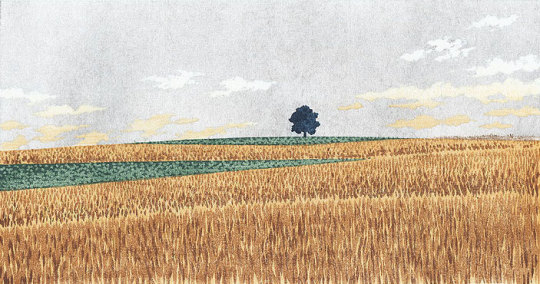
Art by Hajime Namiki
I started this book a while ago but never finished it, so this time I went back and read it all the way through! This book gave me a newfound respect for Mieko Kawakami and her novels. The main character, in spite of her weaknesses and frustrations, tenaciously presses on. Even as she learns to refuse to let others silence her, and to take risks in pursuit of her true desires, she is nonetheless vulnerable and in need of understanding. The themes of living with loneliness and taking responsibility for our own choices really resonated with me 🍁
A PDF of this book is linked above in the title. It's also available at https://straycalico.tumblr.com/online_library :)
0 notes
Text
Seeing his father and Fumiko's mother in the bowls, Kikuji felt that they had raised two beautiful ghosts and placed them side by side.
The tea bowls were here, present, and the present reality of Kikuji and Fumiko, facing across the bowls, seemed immaculate too.
Yasunari Kawabata, Thousand Cranes
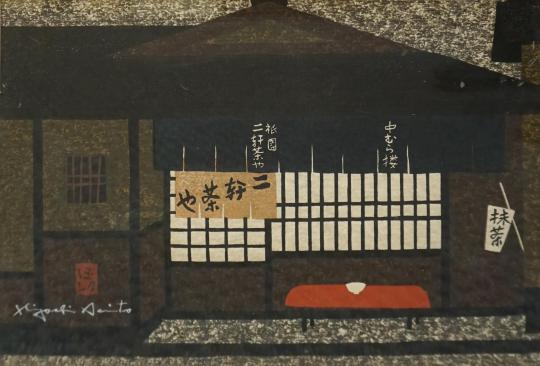
Art by Kiyoshi Saito
2 notes
·
View notes
Text
"The dead are our property, in a way. We must take care of them," said Kikuji. "But they all died in such a hurry."
Yasunari Kawabata, Thousand Cranes

Art by Masao Ido
0 notes
Text
When you're held by the dead, you begin to feel that you aren't in this world yourself.
Kikuji, from Thousand Cranes by Yasunari Kawabata
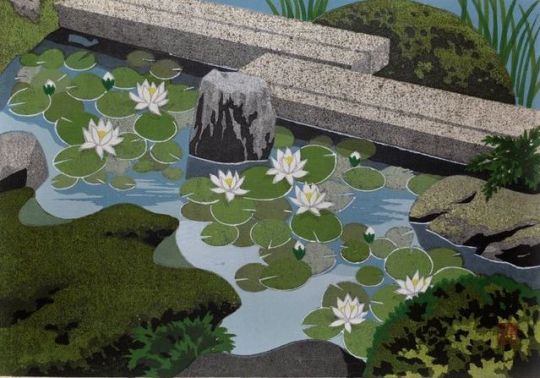
Art by Masao Ido
1 note
·
View note
Text
In a gourd that had been handed down for three centuries, a flower that would fade in a morning... [T]here was something unsettling in the idea of a cut morning glory.
Yasunari Kawabata, Thousand Cranes
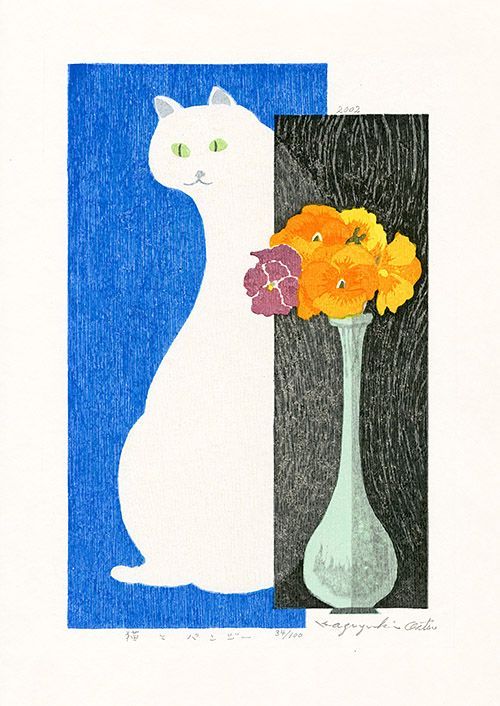
Art by Kazuyuki Ohtsu
1 note
·
View note
Text
The nameless workers, so diligent while they lived, had presently died, and only the Chijimi* remained, the plaything of men like Shimamura, cool and fresh against the skin in the summer. This rather unremarkable thought struck him as most remarkable. The labor into which a heart has poured its whole love—where will it have its say, to excite and inspire, and when?
Yasunari Kawabata, Snow Country
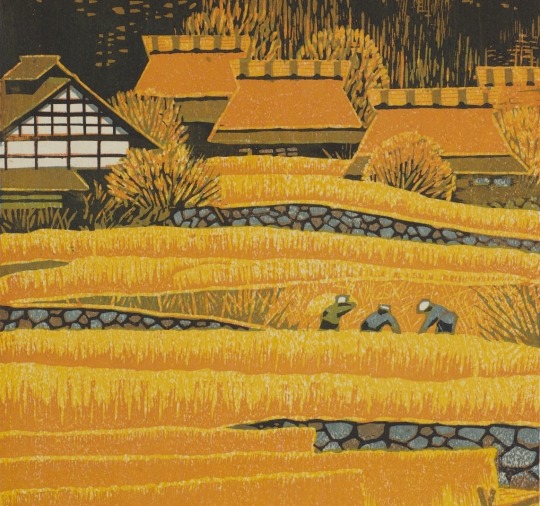
Art by Shiro Kasamatsu
*Chijimi, or Ojiya-chijimi, is a kind of cloth, painstakingly handwoven, that requires bleaching by being stretched out on the snow. In the novel, the narrator reflects on the work of the women who devoted themselves to weaving Chijimi in the winter months, when heavy snowfall left entire communities snowbound.
1 note
·
View note
Text
He had stayed so long that one might wonder whether he had forgotten his wife and children. He stayed not because he could not leave Komako nor because he did not want to. He had simply fallen into the habit of waiting for those frequent visits. And the more continuous the assault became, the more he began to wonder what was lacking in him, what kept him from living as completely. He stood gazing at his own coldness, so to speak. He could not understand how she had so lost herself. All of Komako came to him, but it seemed that nothing went out from him to her. He heard in his chest, like snow piling up, the sound of Komako, an echo beating against empty walls. And he knew that he could not go on pampering himself forever.
Yasunari Kawabata, Snow Country
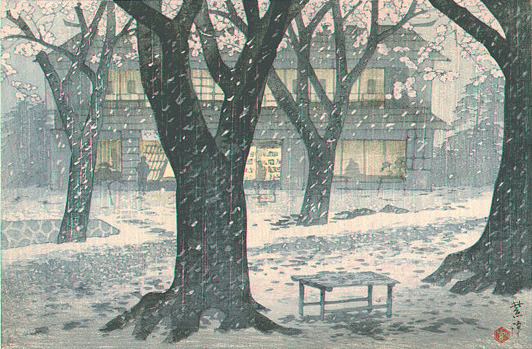
Art by Shiro Kasamatsu
0 notes
Text
Her very loneliness beat down sorrow and fostered a wild strength of will.
Yasunari Kawabata, Snow Country
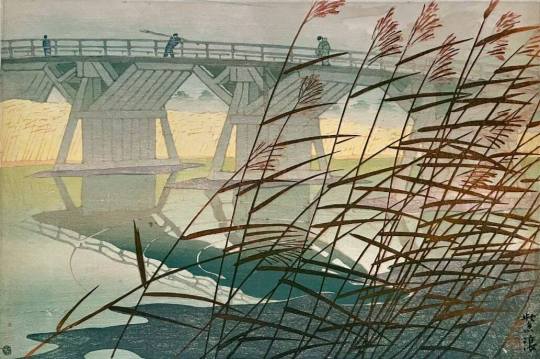
Art by Shiro Kasamatsu
0 notes
Text
My voice gives out when I’m singing for someone I know well. It’s always loud and brave for strangers.
Kamako, from Snow Country by Yasunari Kawabata

Art by Fumio Fujita
3 notes
·
View notes
Text
So when one stands in a cherished place for the last time before a voyage without return, he sees it all whole, and real, and dear, as he has never seen it before and never will see it again.
Ursula K. Le Guin, The Farthest Shore

Art by Toshi Yoshida
12 notes
·
View notes
Text
Nothing is immortal. But only to us is it given to know that we must die. And that is a great gift: the gift of selfhood. For we have only what we know we must lose, what we are willing to lose…
Ged, from The Farthest Shore by Ursula K. Le Guin
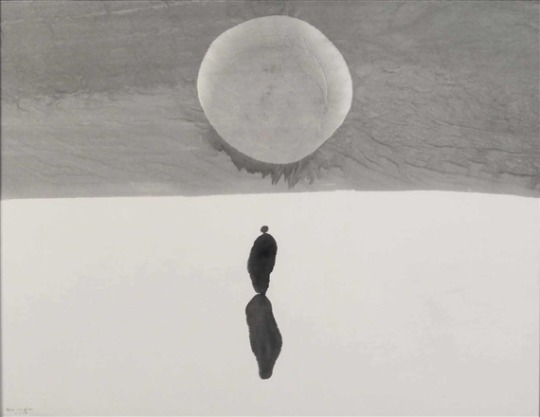
Art by Gao Xingjian
2 notes
·
View notes
Text
When I was young, I had to choose between the life of being and the life of doing. And I leapt at the latter like a trout to a fly. But each deed you do, each act, binds you to itself and to its consequences, and makes you act again and yet again. Then very seldom do you come upon a space, a time like this, between act and act, when you may stop and simply be. Or wonder who, after all, you are.
Ged, from The Farthest Shore by Ursula K. Le Guin
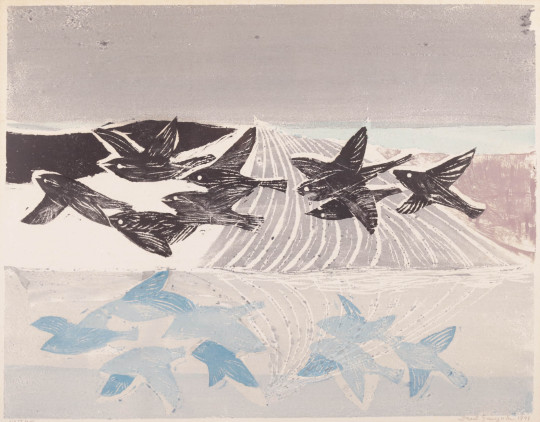
Art by Paul Gauguin
I've recently started reading the Earthsea books by Ursula K. Le Guin. Obviously, they aren't Japanese literature (as several books I've posted quotes from haven't been for a while 😅), but there are some parts that are so pointed and moving, I wanted to preserve and share them here.
I haven't been reading much Japanese literature lately, but Kenzaburo Oe's A Quiet Life is on my shelf, so I'm hoping to get to that soon. New quotes should be forthcoming :)
7 notes
·
View notes
Text
People always say it’s harder to heal a wounded heart than a wounded body. Bullshit. It’s exactly the opposite—a wounded body takes much longer to heal. A wounded heart is nothing but ashes of memories. But the body is everything. The body is blood and veins and cells and nerves. A wounded body is when, after leaving a man you’ve lived with for three years, you curl up on your side of the bed as if there’s still somebody beside you. That is a wounded body: a body that feels connected to someone who is no longer there.
Fenfang, from Xioalu Guo, Twenty Fragments of a Ravenous Youth
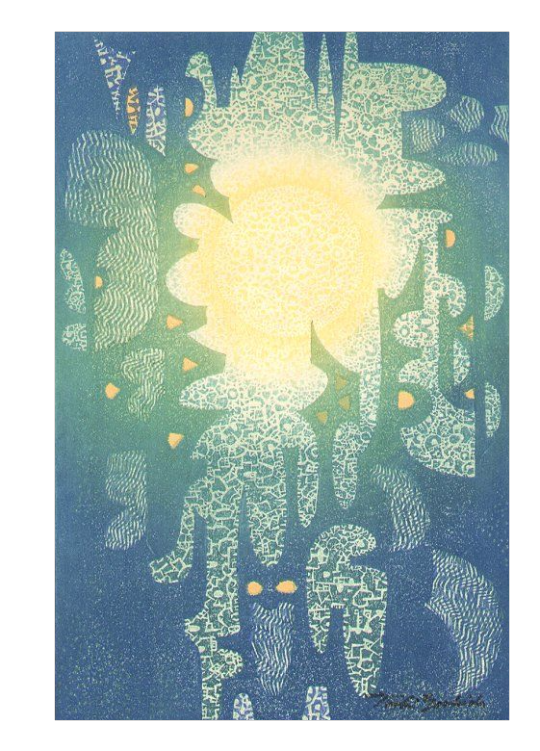
Art by Toshi Yoshida
2 notes
·
View notes